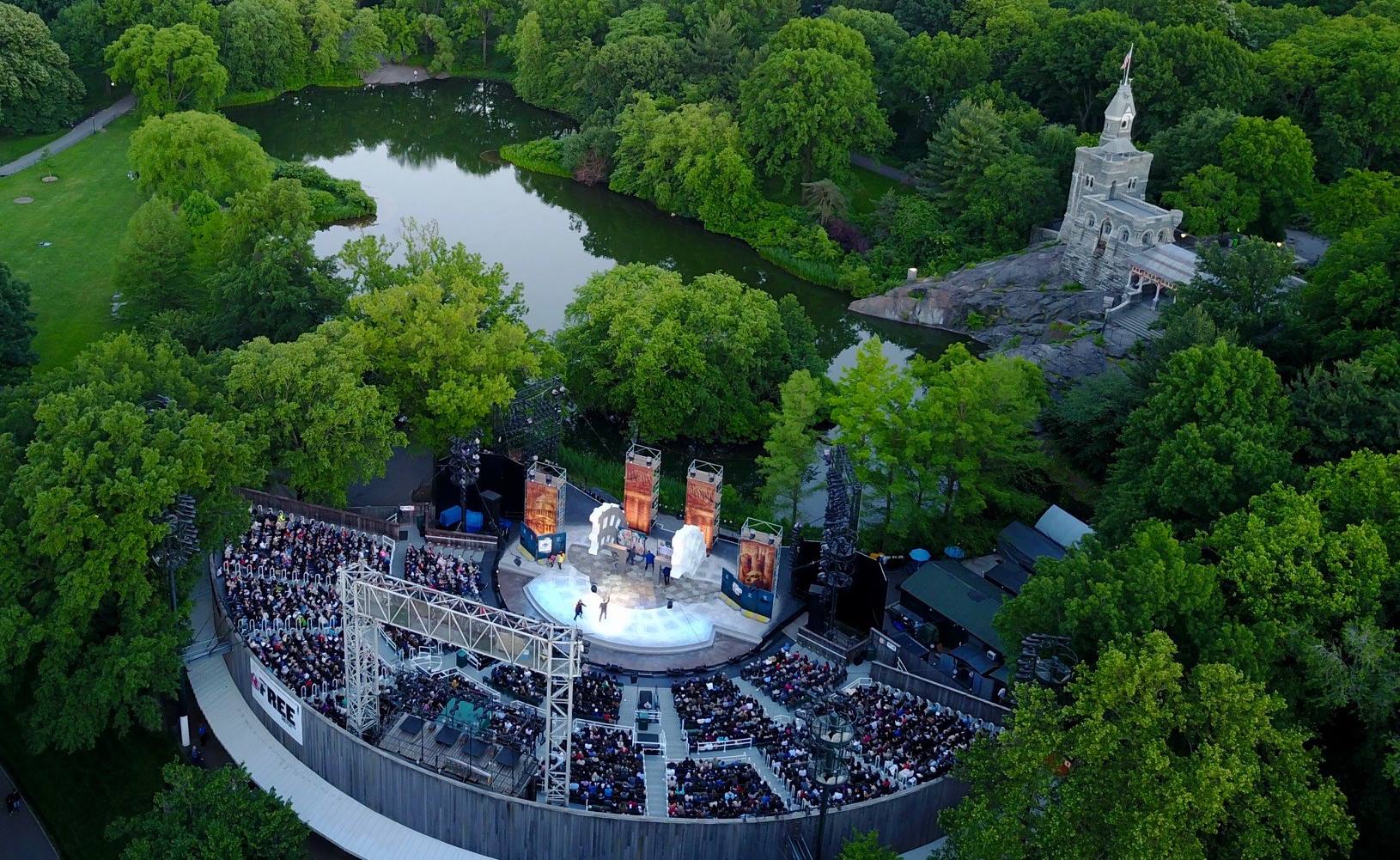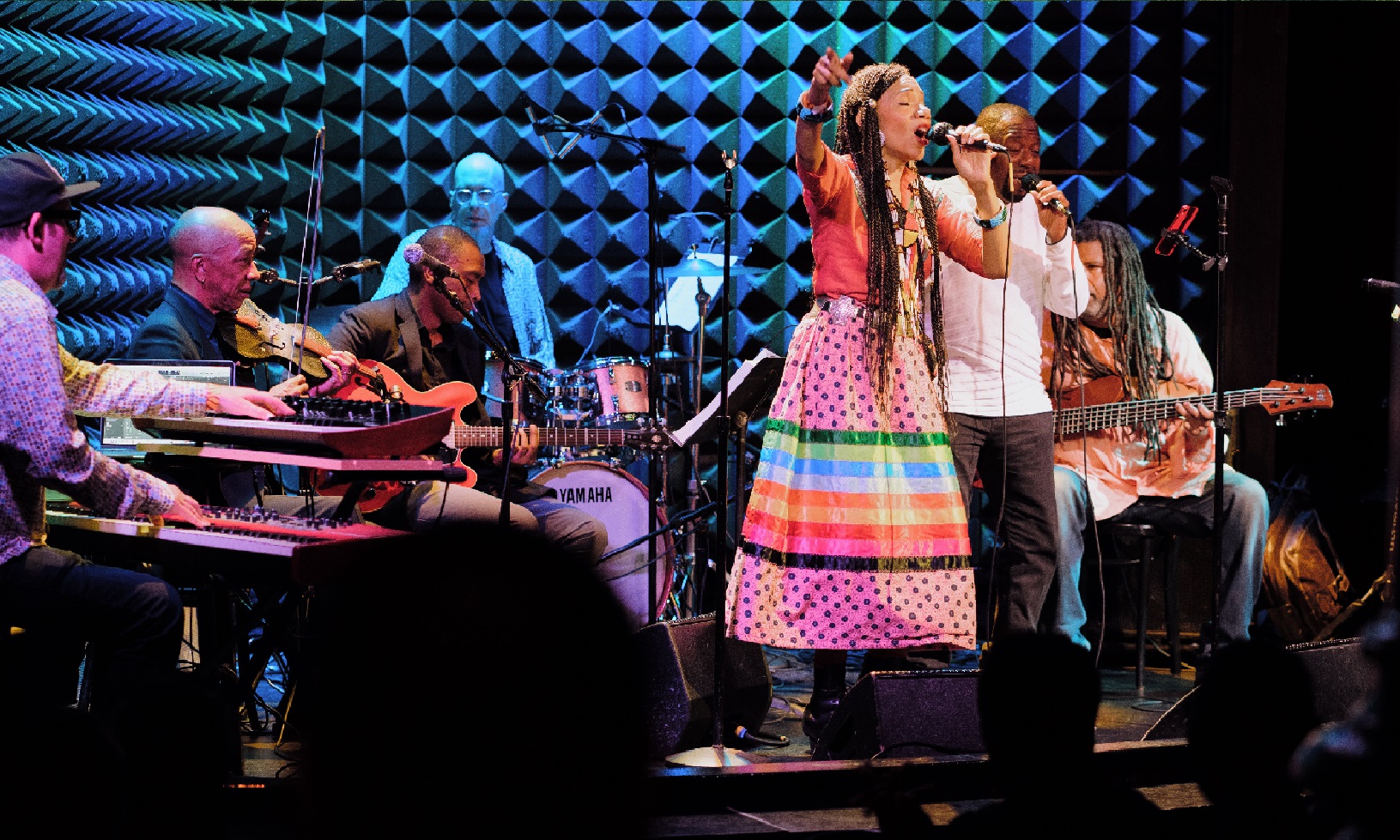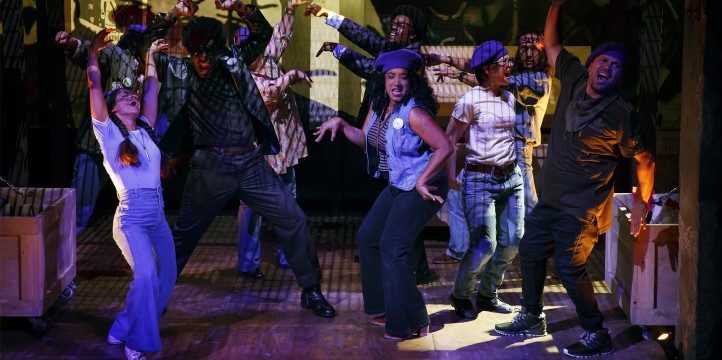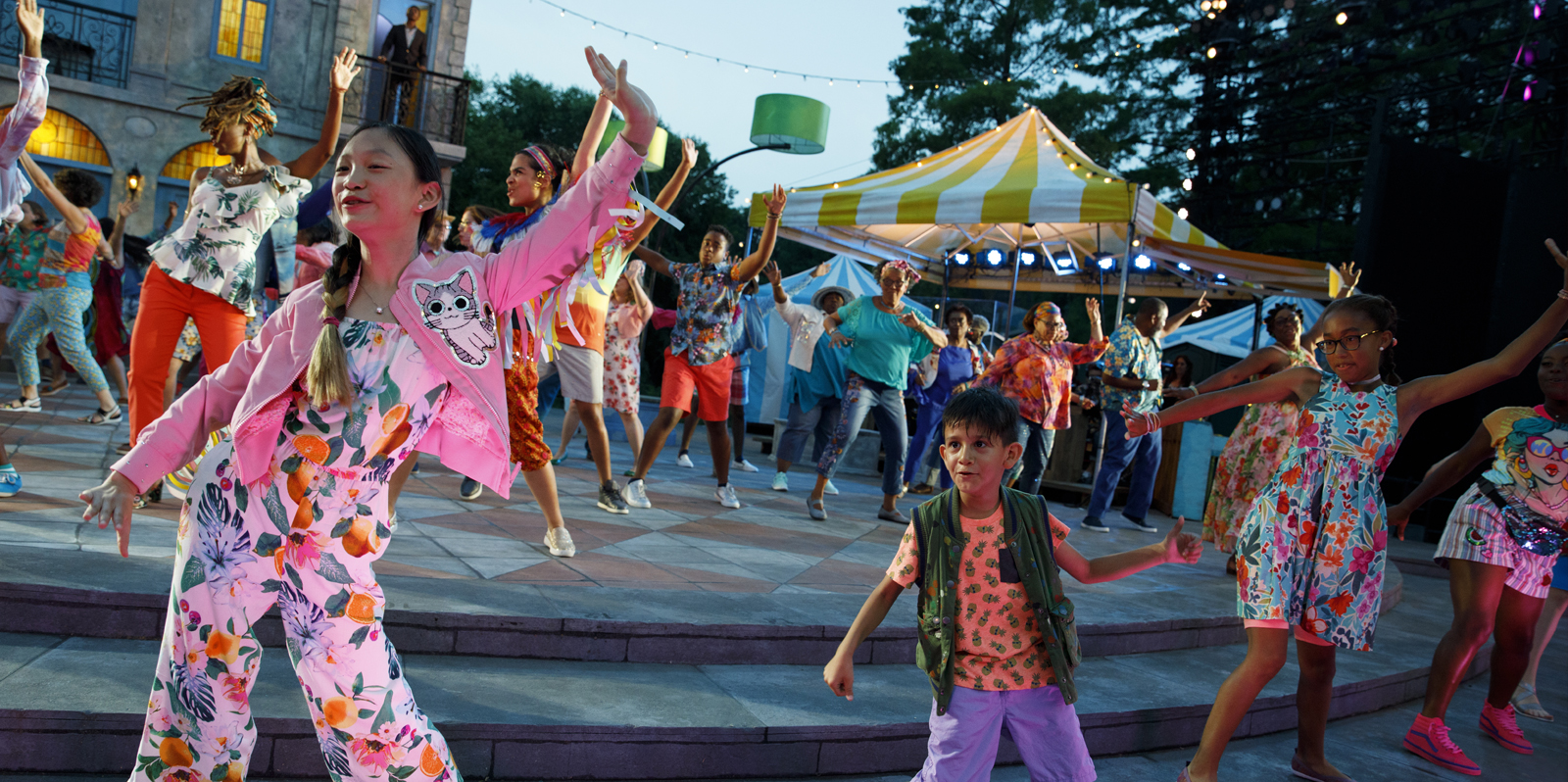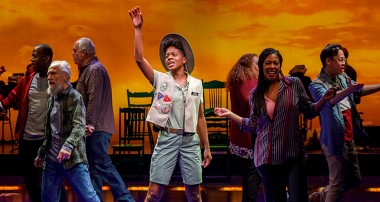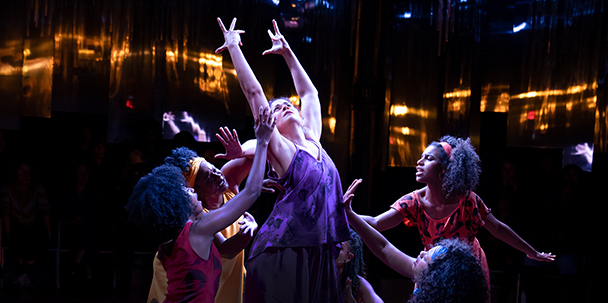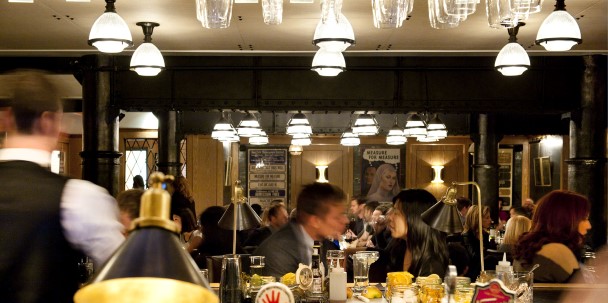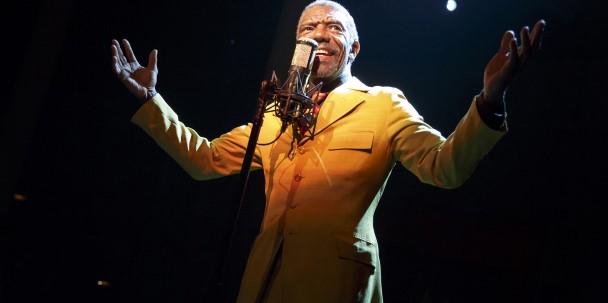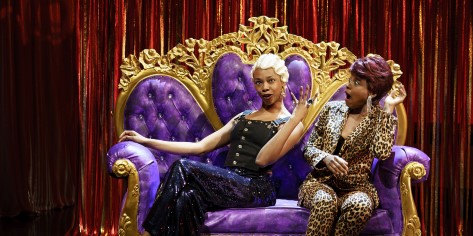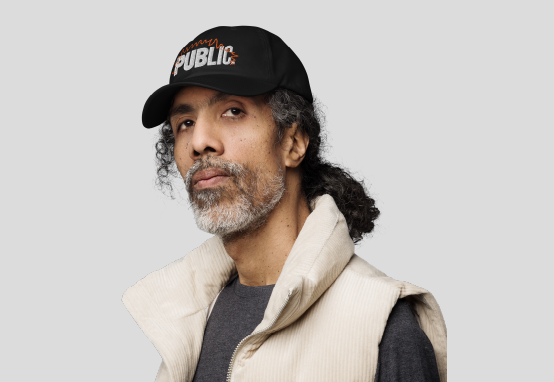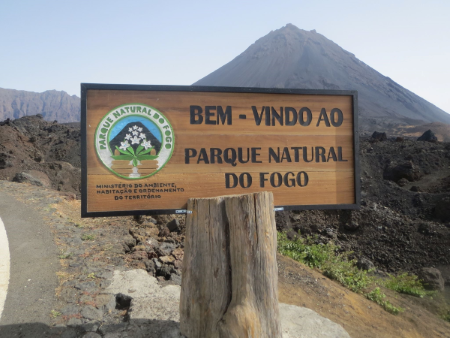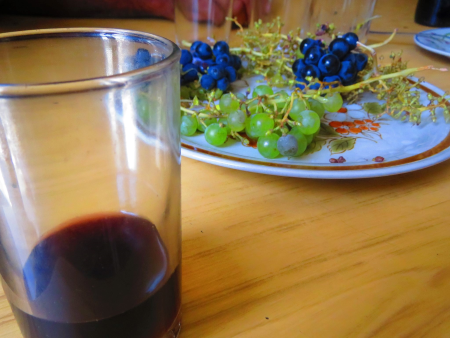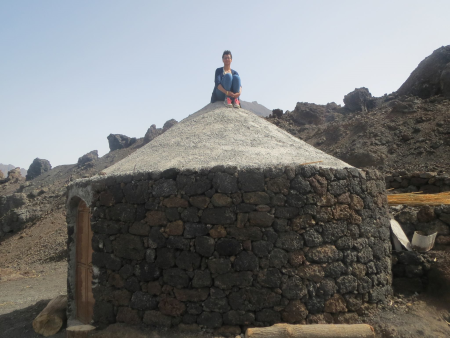Mfoniso Udofia (MU): I’m happy to meet you, and to meet another African playwright.
Francisca Da Silveira (FD): I’m excited to talk about what that means!
MU: Maybe we should start there. I said, nice to meet another African playwright. How is that for you? Is that true? What would you say of yourself?
FD: I would totally say that that is true. And I think that that’s something I’m trying to own more and more. Both as personal identity, and then also writer-identity as well.
MU: Is there a struggle there?
FD: Well, I put in my bio, “Cape Verdean American playwright,” which is both true and false. I was born in Cape Verde and moved to the U.S. when I was four, and didn’t get my American citizenship until I was sixteen, because that’s when my parents got it. And so I have always identified with being Cape Verdean, always identified with being African, but knowing that I grew up in America. I think it was the American identity that I’ve always sort of struggled with.
MU: What parts of it feel tough?
FD: I think it’s really, what are the connotations of it? I’ve lived abroad, and it’s like, what do people know about Americans? What do people think about Americans? And then also having grown up in a very concentrated Cape Verdean community, and being steeped in the food and the language. But, the educational life was all super American, and the cultural life—in terms of music, for example—was mostly American. And now in my adulthood, and as I’m exploring my art more, I’m like, Why don’t I know more about Cape Verdean theater? Why isn’t that something that I was taught growing up? I know food. I know church. I know all of the other aspects. But sort of trying to mash those things together. I don’t know if that makes sense.
MU: It does. When growing up, it felt like, inside, private, was Nigerian, and outside, public, was American, and I lived easy in that kind of separated space. And then it’s when I went to college that I was like, Well, what is integration? And how do I do that? There was a lot of learning how to braid those things together.
I think that’s also a part of what I’m hearing you articulating around, What is Cape Verdean theater? I am deciding that I want to be an artist—or, it has chosen me, it’s calling me—and I want to write from there. Have you done any research into what Cape Verdean theater is?
FD: During the pandemic, I started digging into Cape Verdean theater, and reading about theater festivals that happen every year, and it sort of being tied to the church. Another piece of it is that Cape Verde is ten separate islands, and each island has their own identity, and this big festival that happens every year does not happen on my island. And so I’ve been like, This is something that I want to go to! This is something that I want to be a part of! It’s called Mindelact. It’s an international festival. And I have become close with a dramaturg and theater teacher in Boston who wrote her dissertation on Cape Verdean theater. I read her dissertation, and we’re going to work on some projects together.
MU: Oh that’s wonderful! You have found yourself a mentor of some sort, too.
FD: Yeah, and really excited, and really putting myself in the shoes of, I am learning. I am by no means attempting to be an expert, or to speak for my culture, but trying to figure out, where do my stories and where does my identity fit?
MU: Can I ask a couple questions about The Merry Wives of Grenoble? Because I read the play. It is a gorgeous piece—
FD: —thank you—
MU: —and I would love for people to hear from you what the inspiration behind this piece was.
FD: The Merry Wives of Grenoble is based on the myth that is my great great, great grandfather, who was a white French count, who came from Grenoble, France, traveled around the Cape Verde Islands and then chose to settle on my island and basically like, populate it. I say “myth” because there’s a lot of mystery around him, and why exactly he left France. Some say that he was running away, and was on his way to Brazil.
MU: Something I loved, reading it, was that I never got to see his face. I thought it was a wonderful theatrical device that we didn’t see this thing that was propelling the action.
FD: Yeah, that was very intentional—but still wanting to retain his presence. And he is someone that I’ve heard about my whole life. The Montrond name is very popular, it’s one of those last names in Cape Verde like, you know, “Johnson” or whatever. And there’s sort of an air about it.
This is on my dad’s side of the family. And I discovered that there was a documentary about him. And when I was googling online—Ancestry.com—there were so many people that were also trying to find the same man, the same ancestor. He has a nickname, and this is what the documentary is called—his nickname was Odjo Branco.
MU: What does that mean?
FD: It means White Eyes. And there’s an image of him online, a very old photograph, that’s very imposing looking. Angelic, but also imposing looking. It’s an image that I’ve grown up with. During the pandemic, as I was exploring my genealogy, and reading about him…I found an article that listed the names of these women who were his wives. And seeing those names, I was like, oh, there needs to be something about them. And it needs to be only them.
And obviously there’s a lot of fictionalizing that occurred. They did not all live together, as they do in the play—
MU: —it kind of leads into my next question. Did you make up their personalities? Did you know, for example, that Guilhermina was an alcoholic?
FD: No. All I had were the names of the women. I also didn't know, and still don’t know, which one of them is my great, great, great grandmother. I say to myself, if this play ever gets produced, I want my sister to write the name on a letter and give it to me on opening night. I didn’t want to know because I didn’t want to treat her—whoever that person was—any differently.
MU: What a beautiful way to look at it though. So not to privilege one woman over the others.
So all of this came from your imagination. I’m interested in the impulses that created these women, if you can remember what they are, because they are so singular. I will tell you when I was reading it, I was like, okay, am I going to be able to keep up with who all of the women are? And I was! Thank you very much for writing so brilliantly! But it made me wonder how you knew who they were. Do you remember what some of those impulses were?
FD: I think, because I knew I wanted it to be an ensemble piece, I knew that they each needed to have very specific personalities, something that would drive each of them in those scenes in which they are all together. And so I think, starting large—and I know this is a bad word to use, but a little bit, in caricature—and then sort of complicating and adding nuance. So, like, Antónia specifically is “the pious one”. I was also thinking about how each of these personalities sort of ties into a theme, or into a question that I had about this man and what he represented. With Clementina, who starts the wine business, that is a nod to the fact that there is this specific area at the base of the volcano, a town there called Chã de Caldeiras, where there’s a really thriving wine business. And he is meant to have been the one who brought the grapes—that part of the story, or the myth, is true. But sort of turning it on its head—he was just doing it for himself, and here is this woman who has seen an opportunity, it’s really her endeavor that makes it thrive.


